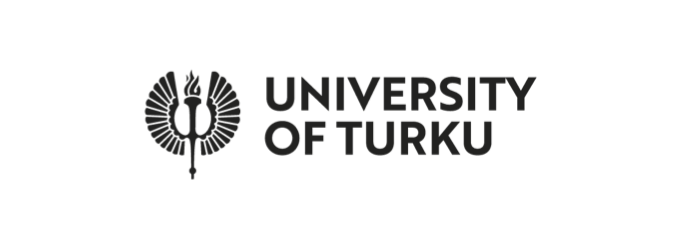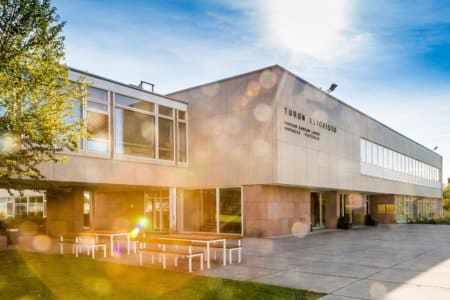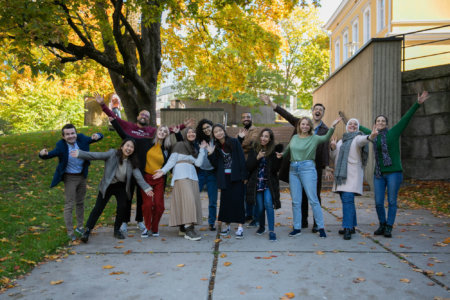A world where cities run seamlessly on AI, where healthcare breakthroughs are driven by algorithms, and where industries are powered by sustainable, intelligent systems. Science fiction? Not anymore — it’s the reality unfolding before our eyes.
Amazon’s data-driven systems are already transforming customer experiences and logistics on a global scale, while cities like Singapore are becoming smarter and greener through cutting-edge digital infrastructure. Even in manufacturing, companies like Siemens are leveraging information and communication technology (ICT) to build more sustainable operations through smart technologies that reduce waste and optimise energy use. Behind these innovations are ICT experts.
Once simply regarded as high-tech specialists, these professionals are now seen as high-demand problem solvers across a range of sectors. The University of Turku’s (UTU) new Bachelor’s Degree Programme in Information and Communication Technology was designed to nurture experts of this calibre.
Offered by the Faculty of Technology, the programme has a curriculum that covers the latest in computer science, data analytics, and cybersecurity while fostering the ability to adapt and innovate, ensuring graduates are well-prepared to tackle the complexities of modern ICT roles. However, don’t let its newness fool you. The programme’s curriculum mirrors the successful structure of the Finnish-language Bachelor’s Degree Programme in ICT, offering the same academic rigour but in English, making it accessible to a global student body.

Erkki Kaila’s research interests are centred around programming education and learning analytics. Source: University of Turku
“We hope to attract students from diverse backgrounds and from all over the world,” says software engineering lecturer Erkki Kaila. “The key qualities we seek are a passion for learning and a willingness to collaborate with others. You don’t need to be an ICT expert to join us — we’ll help you become one.”
Kaila, who completed his master’s and PhD at UTU before a stint at the University of Helsinki, returned to his alma mater to contribute to the dynamic and multidisciplinary Faculty of Technology. “In my opinion, UTU offers the perfect blend of a multidisciplinary research university and a technical university, a unique combination in Finland,” he says.
The seasoned educator’s passion for fostering cross-disciplinary collaboration reflects the growing need for ICT experts who not only excel in technical skills but can also work seamlessly across fields as diverse as healthcare, environmental science, and education. This is why UTU’s new ICT programme provides a strong foundation in subjects like mathematics and physics alongside its specialised courses. It also encourages learners to apply their newfound skills in real-world scenarios of all kinds through project-based learning, active collaboration and more.
One key experiential element is the bachelor’s thesis, a dissertation project that allows students to explore a topic of interest in-depth. It gets them to refine their skills in source material use and scientific writing, before presenting their findings both in written and oral forms. While the thesis is primarily based on scientific literature, there are exciting opportunities to collaborate with companies or organisations outside the university.

The Faculty of Technology is one of UTU’s largest faculties, with over 2,000 students. Source: University of Turku
This ICT programme also allows students to complete part of their studies outside of Finland, either through student exchange programmes or internships. Abroad, they will be able to immerse themselves in new cultures, expand their professional networks, and enhance their understanding of global ICT challenges. Upon their return, they can enrich Finland’s local industry with the knowledge and skills they’ve acquired.
“The programme includes retention measures tailored to the needs of international talents,” says Sari Stenvall-Virtanen, Head of Education at the Faculty of Technology. “These measures help students in finding their place in companies during their studies and, consequently, remain in Finland and the region after completing their degree.”
While Finland may be small in size, its influence in the world of technology is huge. From the pioneering days of Nokia to the recent success of its booming video game industry, the “land of a thousand lakes” has positioned itself as a hub for innovation. “We maintain a strong focus on various ICT fields, such as biotechnology, cybersecurity, and software development,” Kaila notes.
This makes it the perfect backdrop for aspiring entrepreneurs to develop their next big idea. Recognising this potential, the Bachelor’s Degree Programme in Information and Communication Technology offer an entrepreneurship minor designed to give students the tools they need to launch their very own business ventures.
For those looking to advance their expertise before taking their first professional steps, UTU offers a smooth transition from the bachelor’s programme to its international master’s programme in ICT. Graduates can pursue specialisations in high-demand fields such as Data Analytics, Software Engineering, Cryptography, Cyber Security, and Robotics and Autonomous Systems — all without the need for a separate application.
So what are you waiting for? The application period for the Bachelor’s Degree Programme in Information and Communication Technology is just two weeks long — from Jan. 8 to 22, 2025, for studies starting in autumn 2025. To stay informed about application tips, reminders, and valuable insights, subscribe to the Future with UTU applicant newsletter today.
Follow the University of Turku on Facebook, Instagram, Twitter, LinkedIn and YouTube













